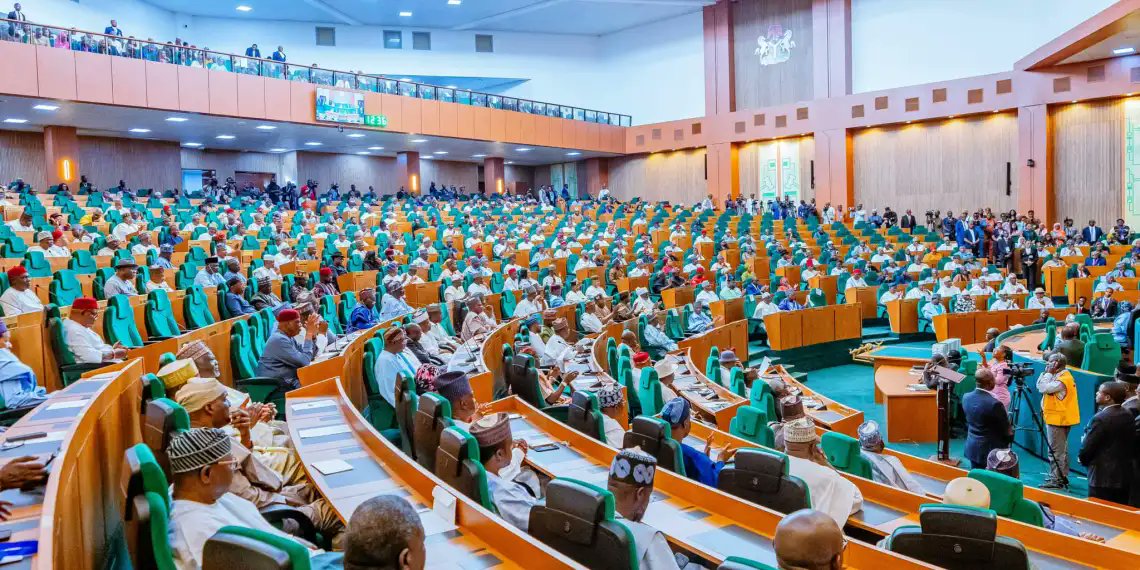Listeners:
Top listeners:
-
play_arrow
104.9FM Best rock music demo
-
play_arrow
Demo Radio Nr.1 For New Music And All The Hits!
-
play_arrow
Demo Radio Techno Top Music Radio
-
 play_arrow
play_arrow
Police Commissioner Launches Weapon and Riot Control Training for FCT Officers Democracy Radio

By Oluwakemi Kindness

The House of Representatives on Thursday, passed through second reading a bill seeking to address critical issues such as climate change adaptation, drought, desertification, flooding, coastal erosion, dam failure, building collapse, oil spills, road accidents, fire, air crashes, boat mishaps, among others.
The proposed legislation titled, “Bill for an Act to Repeal the National Emergency Management Agency Act, Cap. N34, Laws of the Federation of Nigeria, 2004 and Enact the National Emergency Management Agency Bill and for Related Matters,” was sponsored by the Deputy Speaker, Benjamin Kalu, RepresentativBabajimi Benson and 5 others.
Leading the debate on its general principles, one of the co-sponsors, Amobi Ogah lamented that Nigeria stands at a cross road of complex emergency and disaster management landscape and has pressing need to shape sustainable solutions for millions displaced by conflict, flooding, environmental challenges, dam failures, building collapse among others.
He stated that emergency response is still burdened with huge operational constraints, gaps occasioned by bureaucracy, inadequate funding, scarcity of technical skills, difficulty in operation mechanism and poor implementation of policies and legislation.
The lawmaker noted that while the NEMA Act, provides a solid foundation for disaster management, it lacks provisions for addressing critical issues such as climate change adaptation, amongst others.
He said that the Bill therefore seeks to establish a framework that will address the mentioned critical issues, which also include the unplanned imposed negative physical, emotional, social, health, and economic impacts on the victims, and as well establish a self-sustaining alternative funding mechanism beyond the funding mechanism under the extant Act.
Ogah added that when the bill becomes law, NEMA will be repositioned to ensure climate adaptation and resilience in today’s world of complex disaster management.
He said, “The National Emergency Management Agency (Establishment) Act of 1999 elaborately provided for the establishment, functions and governance structure of the National Emergency Management Agency (NEMA) making it the central body for disaster management in Nigeria with State Agencies supporting its mandate at the State level.
While the Act provides a solid foundation for disaster management, it lacks provisions for addressing critical issues such as climate change adaptation and resilience, digital transformation initiatives, drought, desertification, flooding, coastal erosion, dam failure, building collapse, oil spills, road accidents, bomb explosions.
“NEMA will be repositioned through this Bill to ensure climate adaptation and resilience in today’s world of complex disaster management. This reform will also ensure that NEMA disaster risk reduction strategy is aligned with international best practices.
This will also transform NEMA into a stronger coordination authority. It will provide for the establishment of a disaster management institute for training of NEMA staff and other stakeholders. It will also provide for the registration and coordination of Non governmental Organisations (NGOs) and International Non-Governmental Organisations (INGOs) on disaster management and support.
“This Bill presents to us a practical step towards transforming the nation’s emergency and disaster management response framework. The emergency and disaster response mechanism contemplated by this Bill is an important legislative response which meets the demands of Section 14(2)(b) of the Constitution of the Federal Republic of Nigeria, 1999 (As Altered) wherein it is enshrined that the primary purpose of government is the security and welfare of the citizen. Every Nigerian deserves to be protected and assisted at times of emergencies and disasters.”
Written by: Democracy Radio
Similar posts
Copyright Democracy Radio -2024


